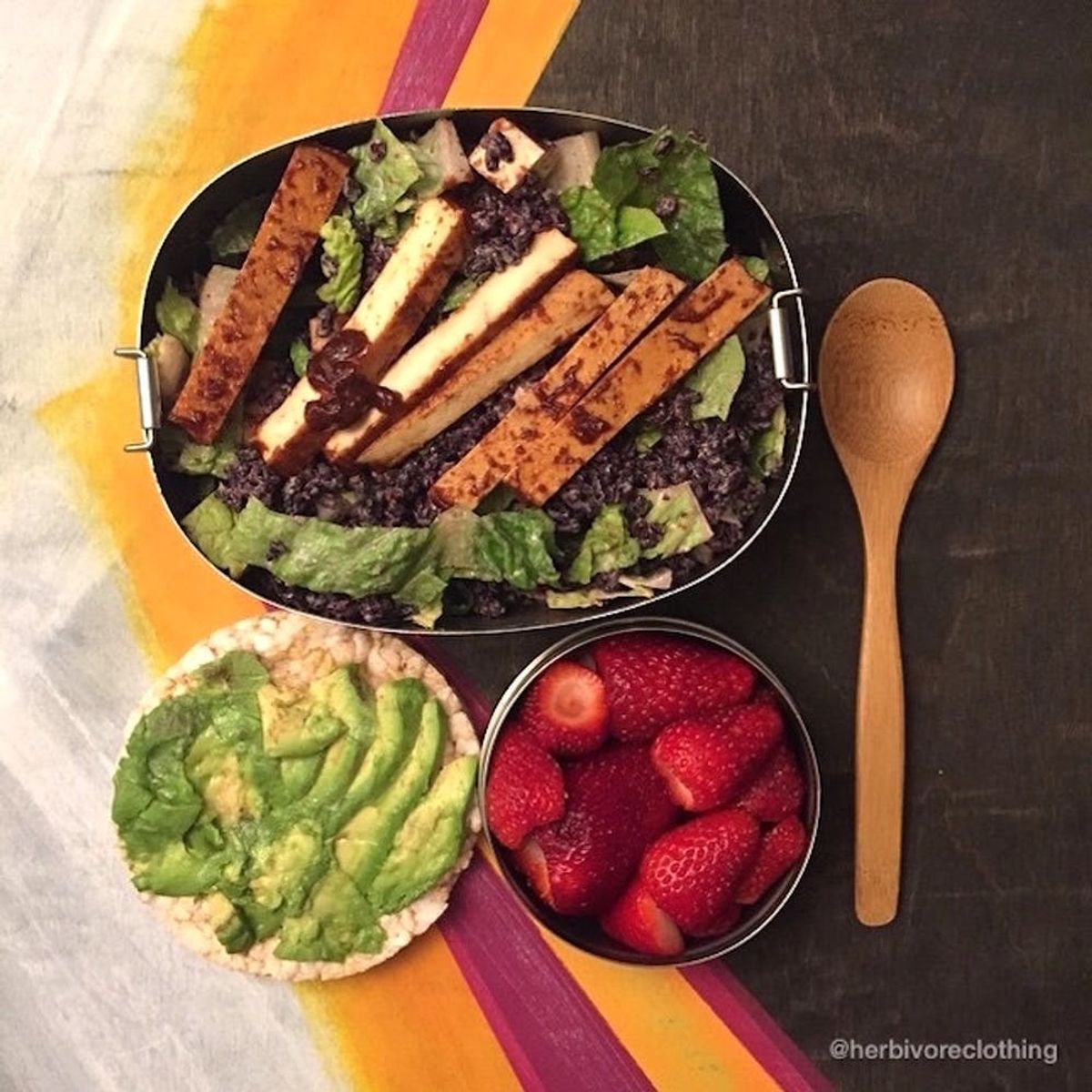3 Vegan Moms Share Tips for Raising Veggie-Loving Kids

Most moms know that getting kiddos to eat their veggies can be a bit tricky. Whether you’re making a creative plate of cut veggies into animals or turning your healthy green smoothie into a fun monster face, you know that a daily serving of fresh fruits and veggies does your children’s body good. Believe it or not, there are moms out there who have been feeding their kiddos a plant-based diet way before Beyoncé started her vegan food delivery company (holla, Yoncé!). If you’ve ever thought about raising your tot on less meat and more plants, these three vegan moms — Jessica Schoech, Marisa Miller Wolfson and Michelle Schwegmann — are here to share their advice for healthy, happy kids.
1. Read up on vegan kid nutrition. Just like with an omnivore child, it’s best to know what nutrients your growing babe needs daily. Marisa, mom of two-year-old Gabriel, highly recommends Raising Vegetarian Children, The Complete Idiot’s Guide to Vegan Eating for Kids and Disease-Proof Your Child as great resources for learning the basics. For vegan mommy blogs, all three recommended Bonzai Aphrodite and Plant-Powered Kitchen.
2. Always be prepared for events. Cooking for your child at home makes it easy to be vegan, but before attending another child’s birthday party, Michelle recommends to “Bring a special treat for your child whenever there is a celebration.” She also points out that, “Most people these days go out of their way to be nice and provide something for everyone. In those times when they aren’t prepared, we are ready so Ruby isn’t left out.”
3. Connect with other vegan parents. Community is super important for new parents, and that’s why chatting online with other plant-based parents can be so helpful. Marisa suggests Facebook groups such as Vegan Pregnancy and Parenting and What Vegan Children Eat, as well as Pinterest for menu-planning inspiration “based on what other vegan parents are posting.”
4. Pack awesome school lunches. Michelle posts her daughter Ruby’s school lunches on Instagram as a way of showing the variety of yummy snacks and nutritious meals she eats every day. Michelle often packs fresh fruit like grapes, strawberries and bananas, and even snap peas straight from her garden. Search #rubybirdslunch on Instagram for instant lunch inspiration (adults included!). (Photo via @HerbivoreClothing)
5. Buy some family-friendly vegan books. All the mamas cited Dreena Burton’s Plant-Powered Familiescookbook as a must-have for easy whole foods ideas. Michelle says, “All of Ruby Roth’s children’s books are great for vegan kids of different ages.” During pregnancy, Jessica said The Vegan Pregnancy Survival Guide was her go-to resource. (Photo via Herbivore Clothing)
6. Get creative in the kitchen. Some of the most requested meals that these vegan moms make are ones that they’ve crafted themselves. “One of my son’s favorite meals is something we call ‘noochy noodles.’ I mix quinoa lentil pasta, vegan butter and lots of nutritional yeast — it’s packed with protein and B12 — and he loves it,” says Jessica. Marisa says Gabriel loves “avocado toast with homemade cashew cheese, chia pancakes or healthy muffins with almond butter on them” for breakfast.
7. Keep the conversation going. Curious kiddos will ask questions about why some people eat meat and some people don’t. When Jessica’s son asked why they don’t eat honey, Jessica explained to him, “Honey is made by bees who collect nectar from flowers to make honey for their families in hives. If we eat it, then they won’t have anything to eat.” Michelle suggests keeping the discussion age appropriate and tailoring the talk as your child grows. “When Ruby was very small,” says Michelle, “We would simply say, ‘We love animals and don’t want to hurt them. It hurts them when people eat them, so we don’t want to do that.’ ”
8. Visit a farm sanctuary together. Sanctuaries such as Gentle Barn, Farm Sanctuary and Woodstock Farm Animal Sanctuary are great places for children to meet animals who are typically seen as livestock. During a recent trip, Jessica said her son saw a turkey and declared, “I like turkeys. We don’t eat turkeys. We eat plants.” (Photo via Farm Sanctuary)
9. Respond with logic rather than an emotional outburst. Curious omnivores might ask you tons of questions about feeding your child a vegan diet. “I have found the key is to stay calm when people ask tons of questions. I simply take a deep breath and respond with logic and well-researched information rather than from a place of emotion,” says Jessica.
10. Don’t fret that it will take you forever to make your child’s meals. A common misconception is that vegan cooking involves expensive shopping trips to Whole Foods and hundreds of hours in the kitchen. Marisa disproves that and says, “Every parent, omnivore or vegan, who wants to feed their kids well will have to spend more time in the kitchen.” Michelle agrees: “It is incredibly important to me to make healthy, delicious food for myself and my daughter, so I make it a priority.” (Photo via Herbivore Clothing)
11. Learn how to answer the inevitable question, “What if your child decides to eat meat some day?” This is a common question that these three plant-based parents are asked by well-meaning friends and family curious about their lifestyle. Marisa handles this question by answering honestly, “He might. He will probably decide to do all kinds of things I won’t be thrilled about like dating the wrong people or wearing ridiculous clothes. Parenthood at some point is an exercise in surrendering control.”
Would you consider raising your children vegan? Tell us in the comments!
(Featured photo via Herbivore Clothing)



















